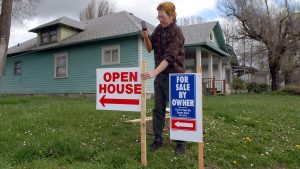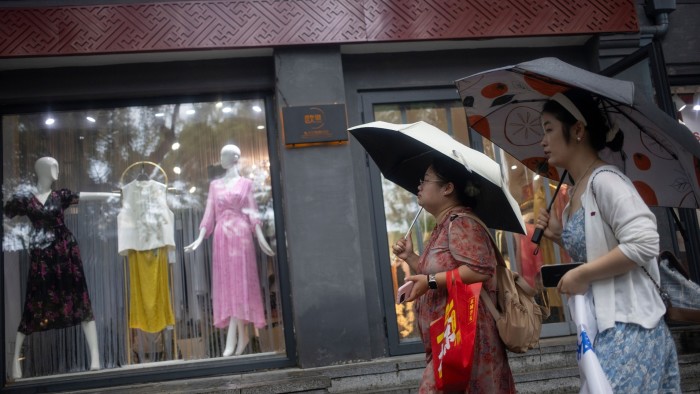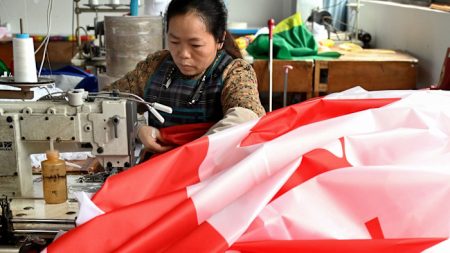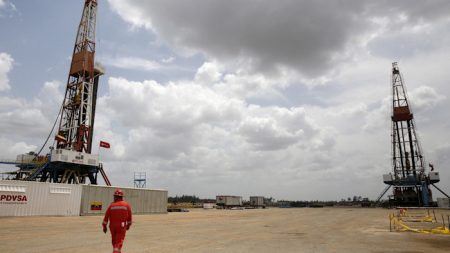Stay informed with free updates
Simply sign up to the Chinese economy myFT Digest — delivered directly to your inbox.
Retail sales in China missed expectations in November, adding to pressure on policymakers as they battle to boost momentum in the world’s second-largest economy.
The consumption gauge added 3 per cent year-on-year, below a forecast of 4.6 per cent in a Reuters poll, and last month’s rise of 4.8 per cent. Industrial production added 5.4 per cent, slightly above predictions.
The unexpectedly weaker growth comes days after Chinese Communist party leaders called for “vigorous” efforts to boost consumption and showed signs of a greater focus on domestic demand at the annual Central Economic Work Conference.
Beijing has struggled to boost confidence against the backdrop of a property slowdown, now entering its fourth year, and bouts of deflation. The government unveiled a series of measures to boost stock markets in late September and to refinance local government debt last month.
Chinese equities fell on Monday morning. The CSI 300 index of blue-chip mainland-listed companies was down 0.6 per cent by mid-morning, while Hong Kong’s Hang Seng index fell 0.4 per cent. China’s 10-year sovereign bond yield fell 0.05 percentage points to 1.73 per cent and its 30-year yield fell below 2 per cent for the first time.
The conference’s work report last week listed consumption as the first of nine economic priorities for 2025, ahead of the “new productive forces” that have emerged as a core pillar of President Xi Jinping’s approach.
The emphasis is one of several signs of growing urgency from the government, including a shift in its monetary policy stance to “moderately loose” from “prudent” for the first time in over a decade last week.
Consumer prices in November rose just 0.2 per cent, a five-month low. Prices have increased every month since January, but growth has remained close to deflationary territory, adding to concerns over the strength of domestic demand.
Consumer spending was an economic concern in China during the Covid-19 pandemic, when the government imposed strict lockdowns to prevent the spread of the virus, and has failed to bounce back fully since a reopening almost two years ago.
Beijing has set a growth target of about 5 per cent for 2024, which Xi last week pledged to meet, saying that China would continue “to play its role as the world’s largest economic growth engine”.
Property investment is down 10.4 per cent in the 11 months to the end of November, the National Bureau of Statistics said, compared with a fall of 10.3 per cent in the first 10 months.
Read the full article here















